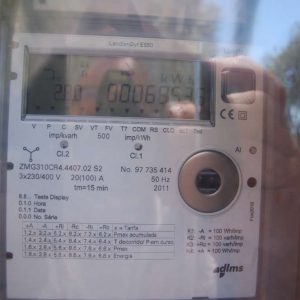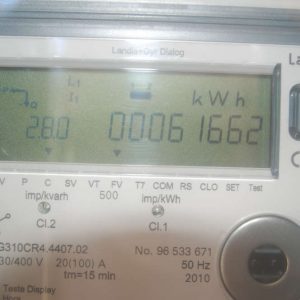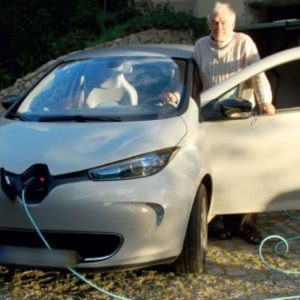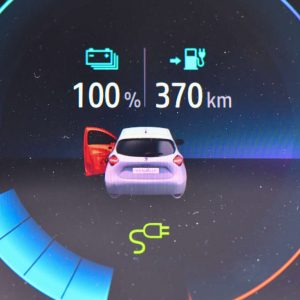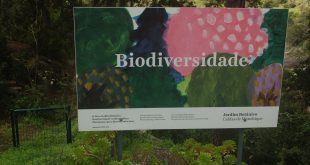Saturday 5th June 2021
Every year, every citizen living in Portugal emits on average some five tons of CO2. Now, the goal is absolute climate neutrality. How can we achieve this? The first two steps described here were about learning new skills. I took a big step right at the beginning. Cutting meat out of my diet, taking part in vegetarian cookery classes and using a permaculture course to kickstart the cultivation of locally grown food on my own land results in a cut of 20 per cent in emissions. Going on to avoid the supermarkets’ freezer sections as well as their meat and sausage counters has saved over 1,000 kg in CO2 per year. In a second step we talked about planting trees and defining ourselves as a friend of the forest. Now the goal of the third step is an active contribution to stop releasing CO2 into the atmosphere. Part of this is the ability to question yourself and your choices. What am I doing wrong? Soft mobility also means never again having to buy fossil fuels, petrol or diesel at a filling station. Game over for those loud, roaring, stinking engines. In 2017 I took my electric car from Monchique to a festival at Idanha-o-Novo. I was prepared to celebrate this step with a party, the only party by the way in that year, as I began to reduce my parties and my travels.
Going on to avoid the supermarkets’ freezer sections as well as their meat and sausage counters has saved over 1,000 kg in CO2 per year. In a second step we talked about planting trees and defining ourselves as a friend of the forest. Now the goal of the third step is an active contribution to stop releasing CO2 into the atmosphere. Part of this is the ability to question yourself and your choices. What am I doing wrong? Soft mobility also means never again having to buy fossil fuels, petrol or diesel at a filling station. Game over for those loud, roaring, stinking engines. In 2017 I took my electric car from Monchique to a festival at Idanha-o-Novo. I was prepared to celebrate this step with a party, the only party by the way in that year, as I began to reduce my parties and my travels.
It all started when I picked up a calculator and added up my annual expenses: between 1,200 and 2,000 euros for the petrol of my car alone. So did I never go to school or something, I was asking myself; did I only ever play truant in maths lessons? I wanted to save another ton of CO2, or more even. What helped me in doing so was visualising where my money was going – flowing from my pocket into companies the likes of BP, Shell, Galp, Esso, Chevron, Repsol and EDP. For many years of my life I unthinkingly entrusted them with my money. This was about to end. I no longer wanted my money to flow into Saudi-Arabia, nor into Venezuela or anywhere else for that matter without knowing what for and why. Now I am spending my money exclusively in the region. From now on, the uppermost goal is to put my money to work in a way that’s 100 per cent climate neutral. For there are clean alternatives to petrol, diesel and gas, alternatives to dirty energy from coal. The target of zero emissions moved into my sight as early as 2010. The fuel of the future is electricity, and in my case it is generated here in Portugal, where the sun is shining down on us for 3,000 hours a year. I might grab a good book to read in my hammock, while the solar modules are earning money for me. Cheeky? Presumptuous? Arrogant?
Maybe. And so how about the monthly energy bill? Exactly. If I am saving on mobility fuel on the one hand, on the other I am earning a little money with the sale of surplus energy, cleanly-produced. This is energy that I’m unable to use in the house or office, as I produce more then I can use. Those saying goodbye to fossil fuels, with the courage to get moving in that direction, will notice the positive effects first of all in their wallets. And I found that move all the easier after picking up my calculator.
Most have this erroneous idea that they will face an enormous burden if they make that move, a kind of tsunami. Wrong. At the moment, the majority of drivers simply can’t really visualise this yet, as of course this raises this issue: so how do I move around instead? What is missing here is mental agility. Because even if there are many different alternatives, change always begins with a mental investment in yourself. The power of imagination is first of all about mental flexibility. Things change. And then nothing stays as it once was. Then there’s another thing of course: mental energy transforms humankind, towards a practical liberty to act and to move. I can only call out to you: people, free yourselves!
Personally I freed myself from buying petrol in 2015 when I applied to APA* for the scrapping premium offered for my petrol-driven car: 4,500 euros. And then the state gifted me the VAT for the electric car, another 4,000 euros. That amount was refunded by the Inland Revenue within 90 days. Of course I had to get moving for that, intellectually, as it were, mentally, and then also practically, by filling in an application, signing it and submitting it to the Inland Revenue. Now as for buying electricity, I emancipated myself as early as 2010, so five years earlier, when planning to buy 40 solar modules. I had hardly any money in my pocket and few savings. So I visited my farmers’ bank in the village and asked them: how much interest do I have to pay you if I borrow 50,000 euros? And how much interest will you pay me if I give you 50,000 euro to be invested safely? The answers dispensed with the need to take our relationship any further. I changed over to an eco bank.
For me, it all starts with an encouraging investment in solar power. For years I’ve been one of those who refuse to take their few savings to a Portuguese bank, for which, as we know, there is no reason anymore, as they gamble with my money, casino-style (see BES). I prefer to invest my savings directly in solar power, step by step. Unlike my colleagues I’ve not bought a new petrol-driven car, nor am I paying in instalments. I refuse to enter into debt by taking out loans with these banks. That too is part of my third step. No more debt trap for me! To reduce spending also means putting the whole commerce malarkey to the test. I am no longer handing over money to other people to play around with. No, I take action myself. It’s important to provide every house, every flat, every rental flat too with its own system for generating clean energy in an autonomous way, including feeding it into the power grid. Implementing this for all tax payers would stimulate the economy and save enormous quantities, at least 30 to 50% of all CO2 emissions in Portugal and the world. I call this thinking in an energy-autonomous way, and becoming energy-autonomous too. And why not go one further and provide a free state-sponsored annual pass for the train, bus and metro networks to those who can prove zero emissions?
It was important for me to take this step from being a passive citizen to being an active one. I said goodbye to this well-known phrase ah well, there’s nothing I can change about my situation anyway for good. Oh yes, I can always change something about my world, for the better, and it started with me actually envisaging this in my mind’s eye. From the moment I stepped over that threshold there was no going back to my distracted and passive world of yesteryear …
To be continued! Next week…
*APA = Agência Portuguesa do Ambiente
 Eco123 Revista da Economia e Ecologia
Eco123 Revista da Economia e Ecologia

